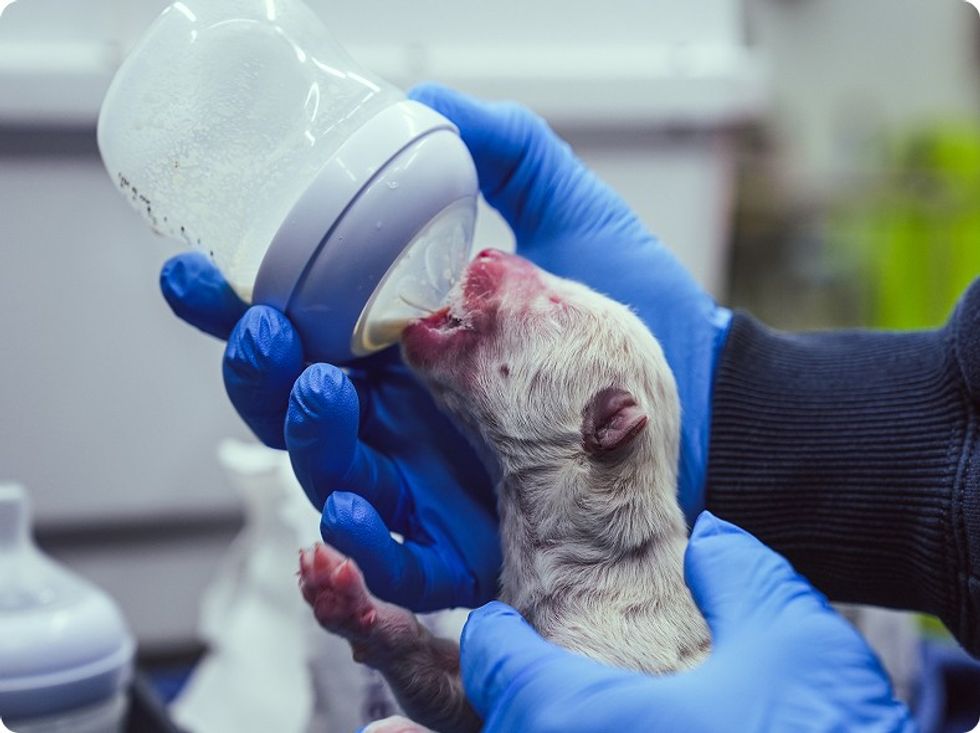The dire wolf, the ancient predator made famous by the TV series Game of Thrones, has been brought back from extinction after more than 10,000 years, scientists have announced.

Colossal Biosciences, a biotechnology company based in Texas, revealed on Monday that researchers have successfully facilitated the birth of three modern dire wolf pups. The new arrivals include two six-month-old males named Romulus and Remus, and a three-month-old female called Khaleesi. This remarkable scientific breakthrough has been hailed as a major step forward in the field of de-extinction.
Using cutting-edge cloning and gene-editing techniques, Colossal’s team created the pups from ancient DNA samples taken from a 13,000-year-old tooth and a 72,000-year-old skull. The project represents the first successful demonstration of the company’s complete de-extinction process, and offers new hope for the revival of other lost species.

Ben Lamm, chief executive of Colossal, said he was immensely proud of the achievement, calling it a “massive milestone” for the company.
“Our team took DNA from a 13,000 year old tooth and a 72,000 year old skull and made healthy dire wolf puppies,” he said.
“It was once said, ‘any sufficiently advanced technology is indistinguishable from magic’. Today, our team gets to unveil some of the magic they are working on and its broader impact on conservation.”
The dire wolves, which once roamed the Americas, were larger and more muscular than today’s grey wolves, with thick, light-coloured fur and powerful jaws. They disappeared from the Earth around the end of the last Ice Age, but remained popular in pop culture, especially after appearing in fantasy settings like Dungeons & Dragons and World of Warcraft. Their legendary status was cemented through HBO’s Game of Thrones, where they served as the loyal companions to the Stark family.
- YouTubeColossal Biosciences
Colossal’s researchers explained that they based their work on the dire wolf’s closest living relative, the grey wolf. They took blood cells from a living grey wolf and genetically modified them at 20 different sites to introduce key dire wolf traits. The edited genetic material was then transferred into egg cells from domestic dogs. These embryos were implanted into surrogate mothers, leading to the birth of Romulus, Remus, and Khaleesi.
Dr Beth Shapiro, chief science officer at Colossal, described the achievement as groundbreaking.
“Our novel approach to iteratively improve our ancient genome in the absence of a perfect reference sets a new standard for palaeogenome reconstruction,” she said.
“Together with improved methods to recover ancient DNA, these computational advances allowed us to resolve the evolutionary history of dire wolves and establish the genomic foundation for de-extinction.”
- YouTubeColossal Biosciences
The new pups will live in a continuously monitored, secure ecological preserve certified by the American Humane Society and registered with the US Department of Agriculture. Colossal stressed that animal welfare remains a priority throughout the project.
George RR Martin, author of A Song of Ice and Fire, the books on which Game of Thrones is based, is both an investor in Colossal and a cultural adviser for the company.
“Many people view dire wolves as mythical creatures that only exist in a fantasy world, but in reality, they have a rich history of contributing to the American ecosystem,” Martin said.
“I get the luxury to write about magic, but Ben and Colossal have created magic by bringing these majestic beasts back to our world.”
Colossal’s work with dire wolves is only part of its broader efforts in conservation and genetic science. Alongside this achievement, the company announced that it had successfully cloned four red wolves. Blood was drawn from wild members of the critically endangered red wolf population in the southeastern United States, and used to create clones intended to boost genetic diversity in the small captive population. Scientists hope this will strengthen the efforts to save the red wolf from extinction.
The broader mission of Colossal includes de-extincting several other species, such as the woolly mammoth and the dodo. The success of the dire wolf pups now stands as proof of concept that such ambitions may be achievable.
While the resurrection of the dire wolf raises thrilling possibilities, it also prompts important ethical questions about humanity’s role in bringing extinct species back to life. Colossal maintains that its goal is to help restore ecosystems and advance conservation efforts, rather than to recreate animals simply for curiosity or entertainment.
For now, Romulus, Remus, and Khaleesi represent a living link to a lost age of Earth’s history — and a glimpse into a future where science and imagination combine to shape the natural world.




















